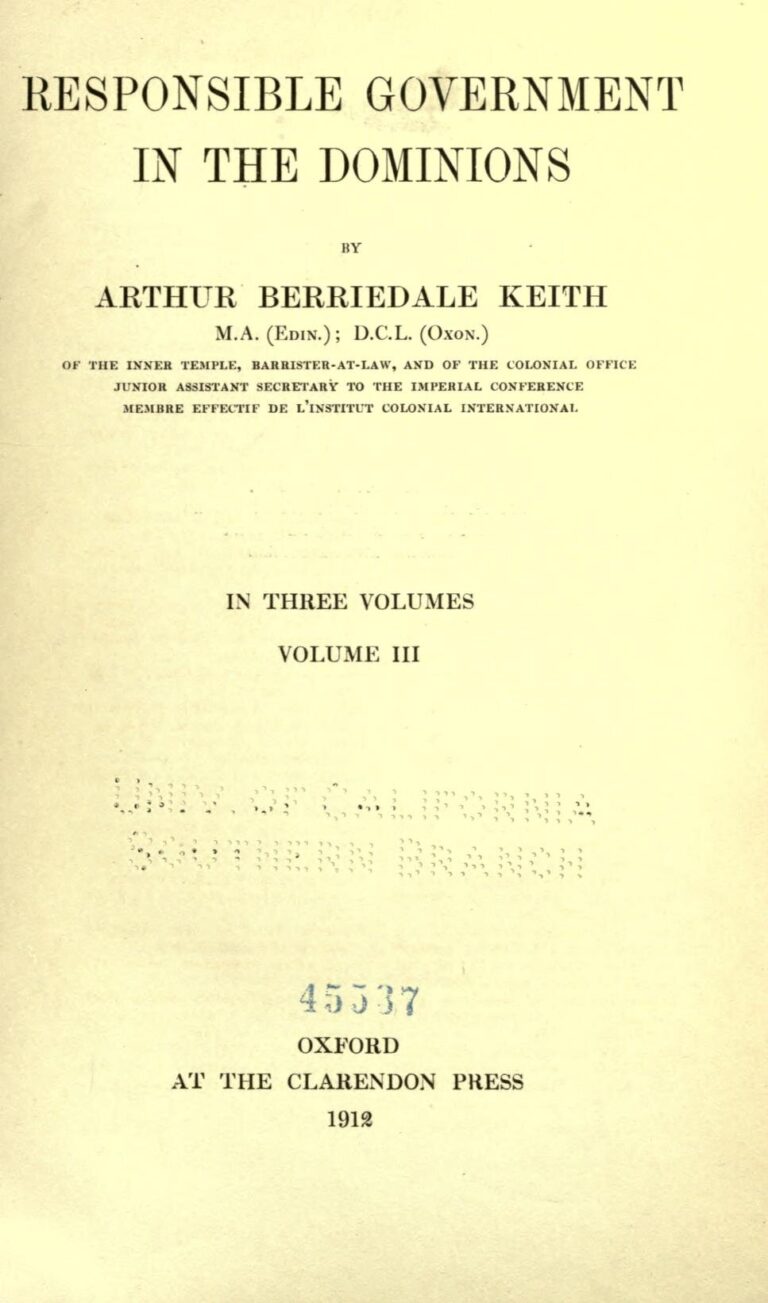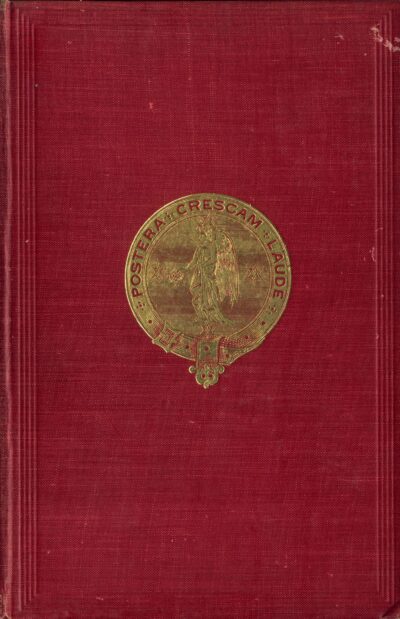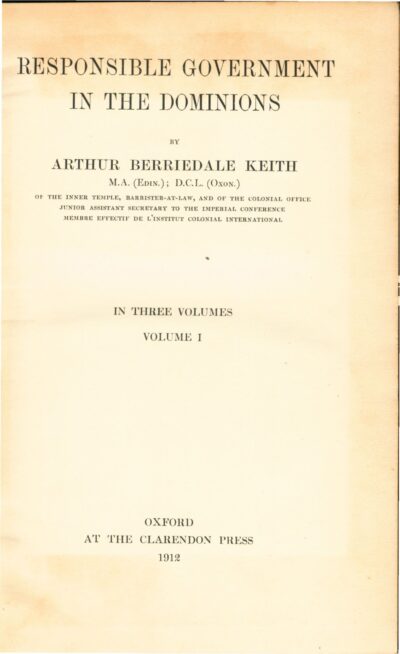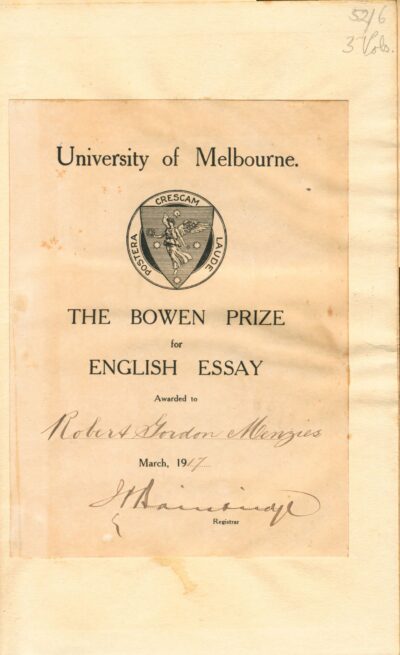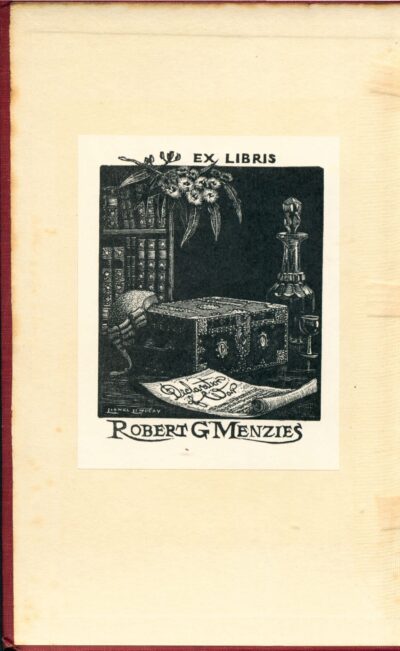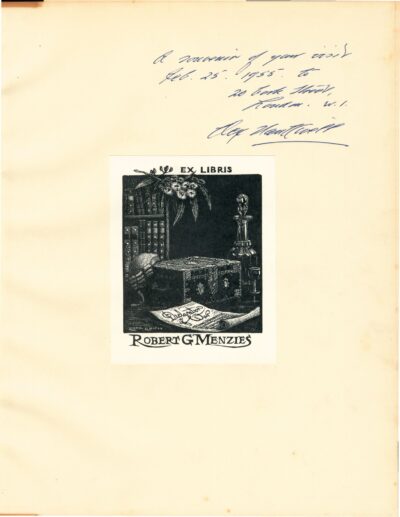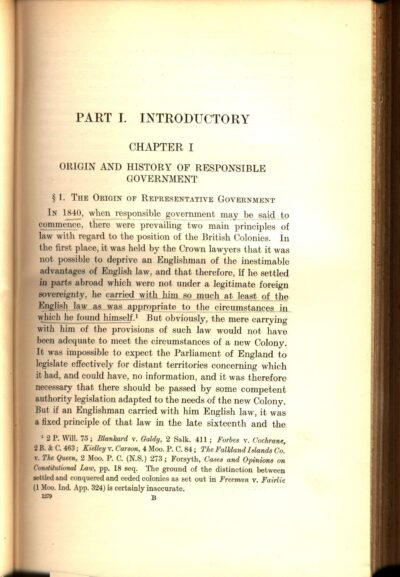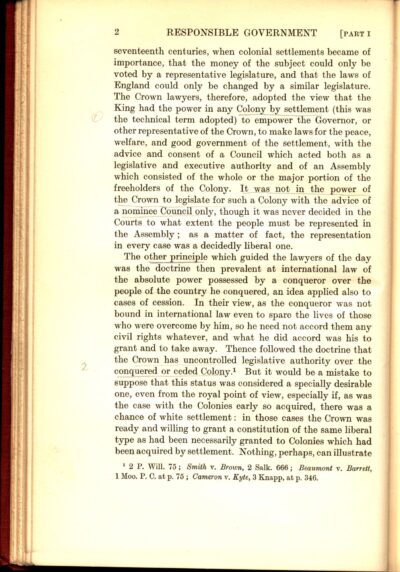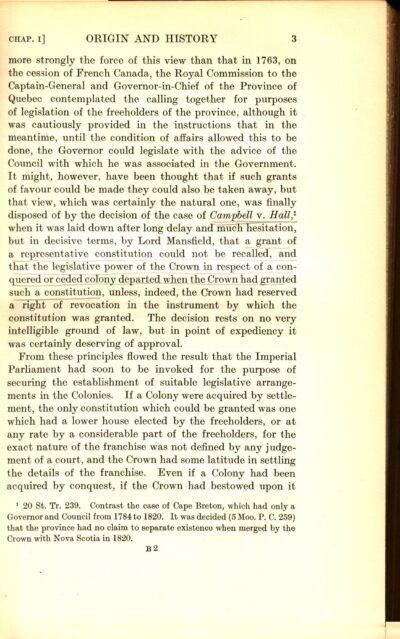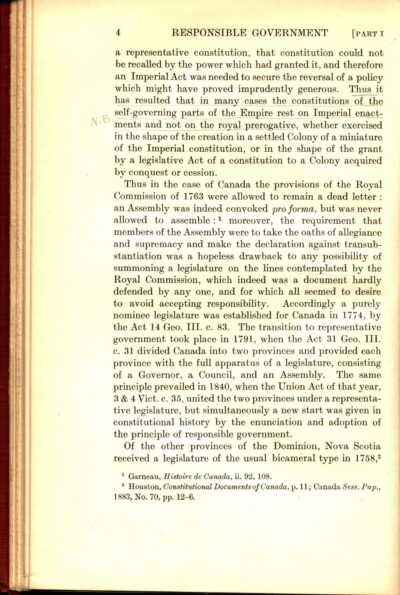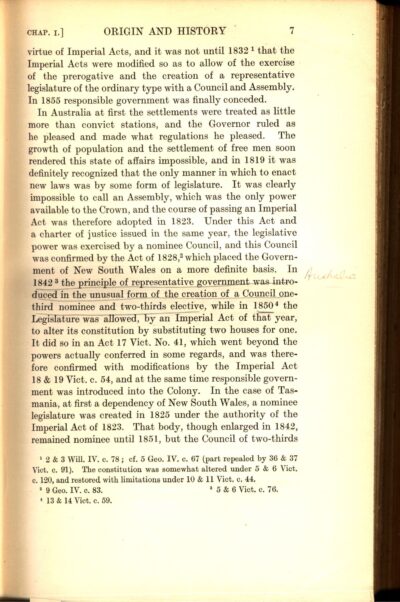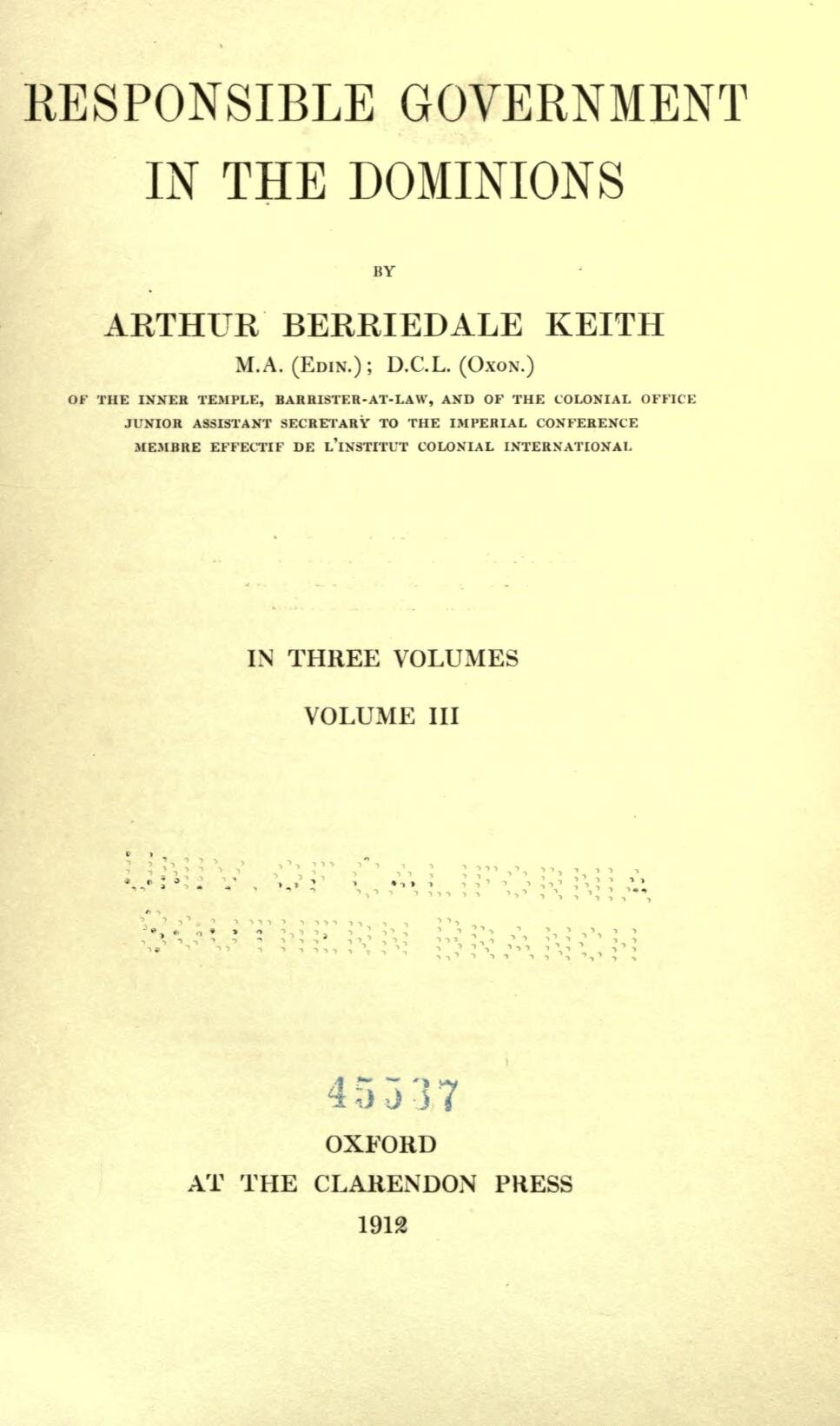Arthur Berriedale Keith, Responsible Government in the Dominions: In Three Volumes, 1912
Arthur Berriedale Keith was a clerk of the Colonial Office in the British public service, later becoming Regius Professor of Sanskrit and Comparative Philology and Lecturer on the Constitution of the British Empire at the University of Edinburgh. Keith’s position gave him a working knowledge of the constitutions of the four British ‘Dominions’ (Australia, Canada, New Zealand, and South Africa), settler colonies of the British Empire which by the early 20th century had all been granted extensive political autonomy, but which were still administered under the umbrella of the Colonial Office.
Keith’s work was arguably the first detailed comparative study of how all four of these quite young constitutions functioned under systems of responsible government whereby ministries responsible to local parliaments ran each Dominion by exercising the sovereignty of the Crown as represented by the Governor-Generals. Each constitution had their own peculiarities based on local circumstance, and the comparison helped to illuminate the adaptive nature of British rule and the strengths and weaknesses of each set of institutions. In Australia’s case the main peculiarity was the attempt to graft the American system of judicial supremacy (the High Court’s powers of review) onto a British system which was traditionally based on a contradictory notion of parliamentary supremacy. Originally published as one volume in 1909, Responsible Government in the Dominions was expanded to three comprehensive volumes in 1912 and then given a completely updated release in 1928 which caught up with subsequent constitutional developments. This triple release testifies to the influence and importance of the work.
Menzies’s volume is most interesting because of its provenance. Menzies received it when he won the University of Melbourne’s Bowen Prize for English Essay in March 1917, having submitted a 36-page treatment of ‘The Rule of Law During the War’. It is thus an artefact of Menzies’s considerable academic achievement, the pervasiveness of British ideology at the time of his education, and of just how new and novel Australia’s post-federation status was. The volumes include pencil notes which suggest Menzies’s active engagement with the work, and it certainly appeals to what were known interests of his, including constitutional law, the workings of the British Empire/Commonwealth, and the role of the High Court. The 1912 release received criticism from some reviewers for being too dense and detailed, so the fact that Menzies seems to have engaged with it to such a degree shows the lengths to which he was willing to go to educate himself on these topics.
You might also like...
Sign up to our newsletter
Sign up for our monthly newsletter to hear the latest news and receive information about upcoming events.

